WATERVILLE — Karen Heck and Martha Patterson both cast ballots Tuesday at the Harold Alfond Athletic Center at Thomas College, but their support as registered Democrats went to different candidates in the primary race for House District 65.

Karen Heck, left, and Martha Patterson are seen outside the polls Tuesday at the Harold Alfond Athletic Center at Thomas College in Waterville. Cayley Bowman/Morning Sentinel
Heck, 71, a registered Democrat and former mayor of Waterville, said she voted for Cassie Julia, who is challenging Rep. Bruce White over issues related to reproductive rights.
Patterson, 77, who described herself as a “staunch Democrat,” said she voted for White, citing the incumbent’s character, services, humility and beliefs.
“It is my civic duty to vote, and I am always faithful to the process,” Patterson said.
Heck and Patterson were among voters across Maine who were motivated to vote in Tuesday’s primary election because of a competitive race. Their motivation was rare, though, as Maine Secretary of State Shenna Bellows reported Tuesday morning that turnout “seems light across the state.” Of the 34,000 absentee ballots that were requested, about 28,000 were returned, an “extraordinary low” return-rate that Bellows attributed to the fact that many State House races were not contested.
“We have had a little under 400 walk-ins,” Roland Hallee, Waterville’s election warden, said around lunchtime Tuesday, noting that turnout represented about 4% of the city’s 10,000 registered voters, not counting absentee ballots.

A primary election voter fills out a ballot at the Augusta Ward 2 polling place Tuesday in the city council meeting room of the Augusta City Center. Joe Phelan/Kennebec Journal
It was a similar story in other local precincts. In Augusta, election officials reported a slow day by the afternoon, with just over 100 ballots cast at one polling place and two other locations in slightly higher double-digits.
Tuesday’s elections included contested Republican party primaries for both of Maine’s seats in the U.S. House of Representatives, as well as contested party primaries for legislative seats and some county offices. The winners of those primaries will run in the November general election.
Many municipalities around the region also voted Tuesday on candidates and budgets for local government and schools.
Races such as House District 65, representing part of the city of Waterville, were a top draw for a sampling of voters interviewed Tuesday afternoon outside the polling station.
White, a 66-year-old Democrat, was seeking his 4th term in the Maine House of Representatives and faced a primary challenge from Julia, 45, after voting against bills advancing abortion and reproductive rights.
Outside of the polls Tuesday at Thomas College, White and Julia were both greeting voters with smiling faces. The winner will face Republican Tammy Brown in the general election.

Norridgewock voter Rob Mercier exits the voting booth during the election at the polling center in the gymnasium of the Mill Stream Elementary School in Norridgewock on Tuesday. Rich Abrahamson/Morning Sentinel
Megan Scott, 48, said she cast a vote for Julia over issues related to reproductive rights and the LGBTQ+ community. “I’m engaged in state policy, I follow the Legislature a lot, and so I feel a voice like Cassie’s is really needed at the State House,” Scott said.
Other voters also cited the primary races for Maine’s congressional races as a motivating factor.
In the 1st Congressional District, political newcomers Andrew Piantidosi of Cape Elizabeth and Ronald Russell of Kennebunkport were vying to take on Rep. Chellie Pingree, a Democrat seeking her ninth term, in the November general election.
In the 2nd Congressional District, Maine Reps. Austin Theriault of Fort Kent and Mike Soboleski of Phillips were competing for the chance to challenge Rep. Jared Golden, a Lewiston Democrat seeking a fourth term.
Bellows, the secretary of state, said she was reminding voters Tuesday that it was the first statewide open primary in which unenrolled voters can cast ballots in a party primary.
“We’re continuing to educate the unenrolled voters that they can participate,” she said. “We’re still trying to get the word out because a lot of unenrolled voters who call themselves independents have been trained to think that they can’t participate on primary day. That’s changed.”
Portland Press Herald reporter Dana Richie and Kennebec Journal photographer Joe Phelan contributed reporting.
Send questions/comments to the editors.

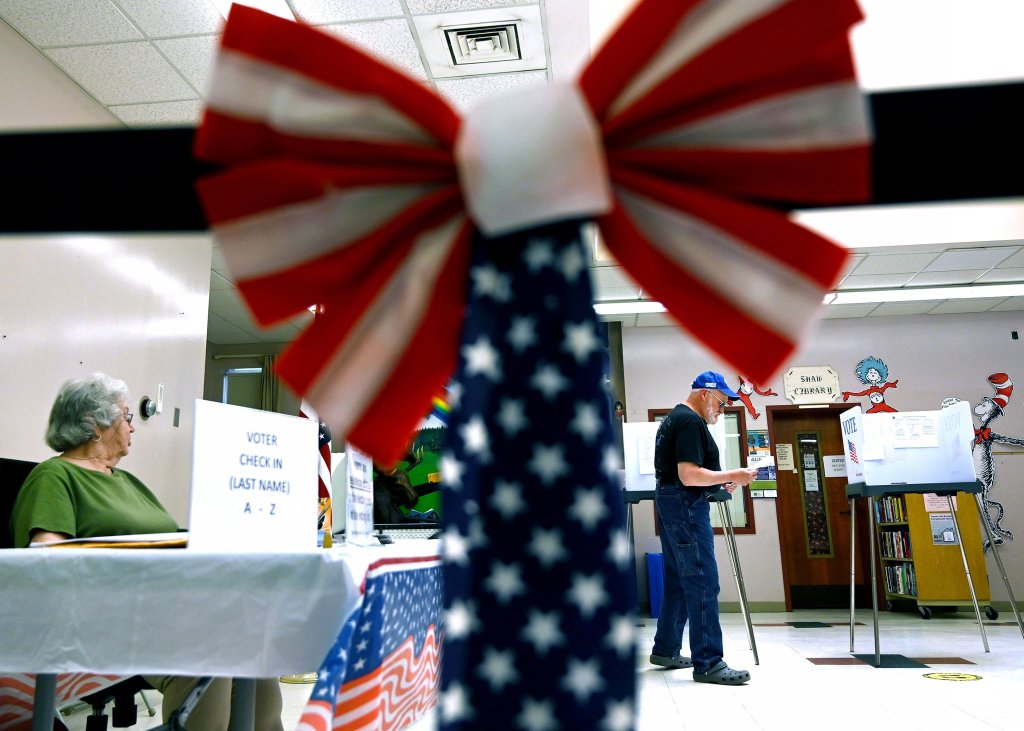
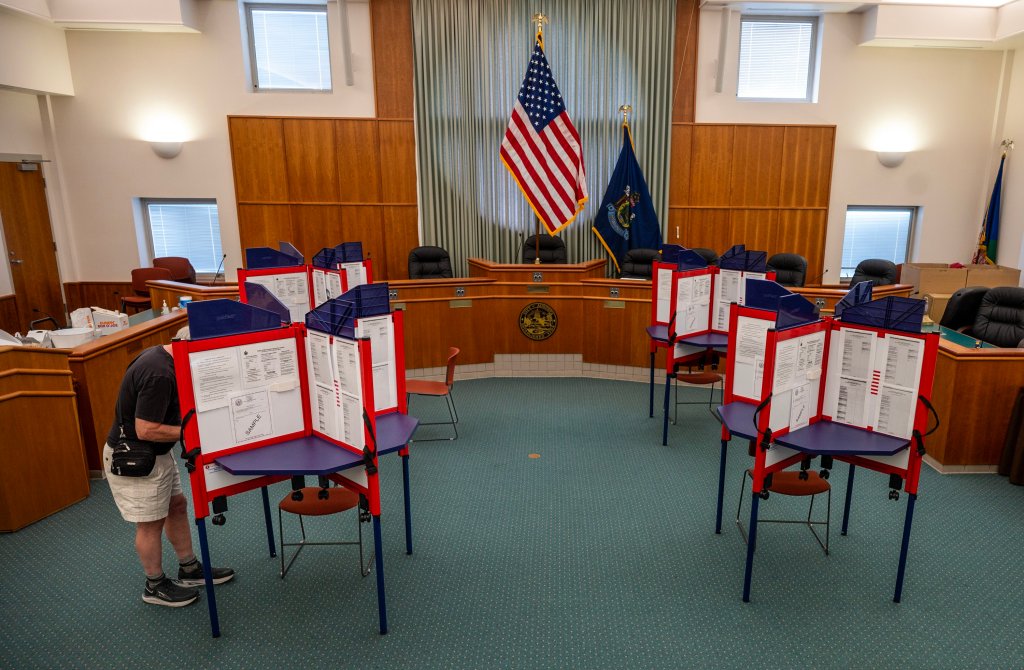
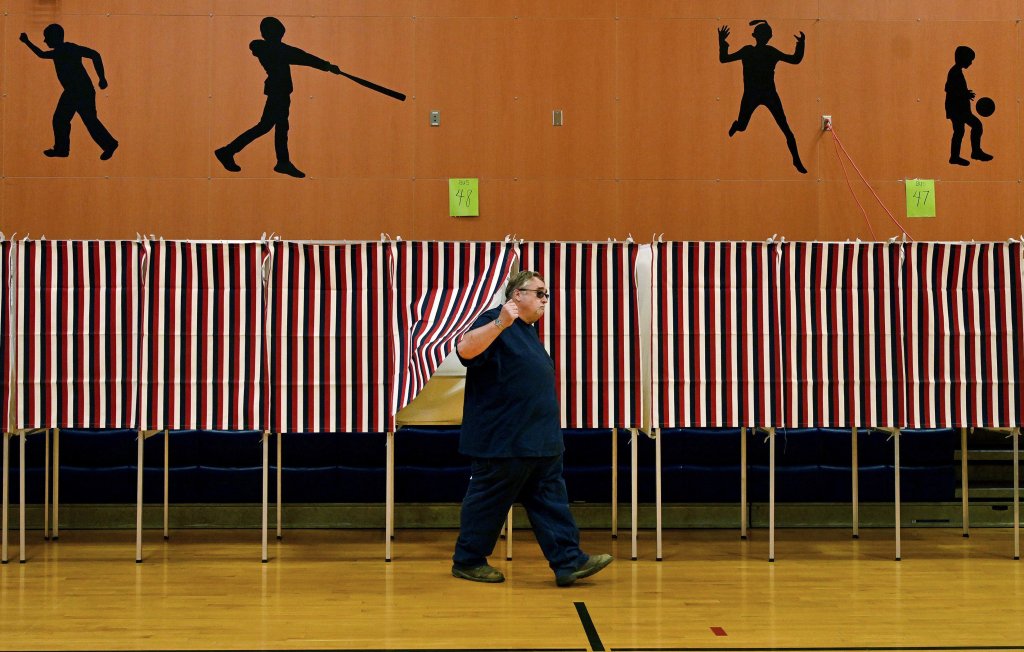
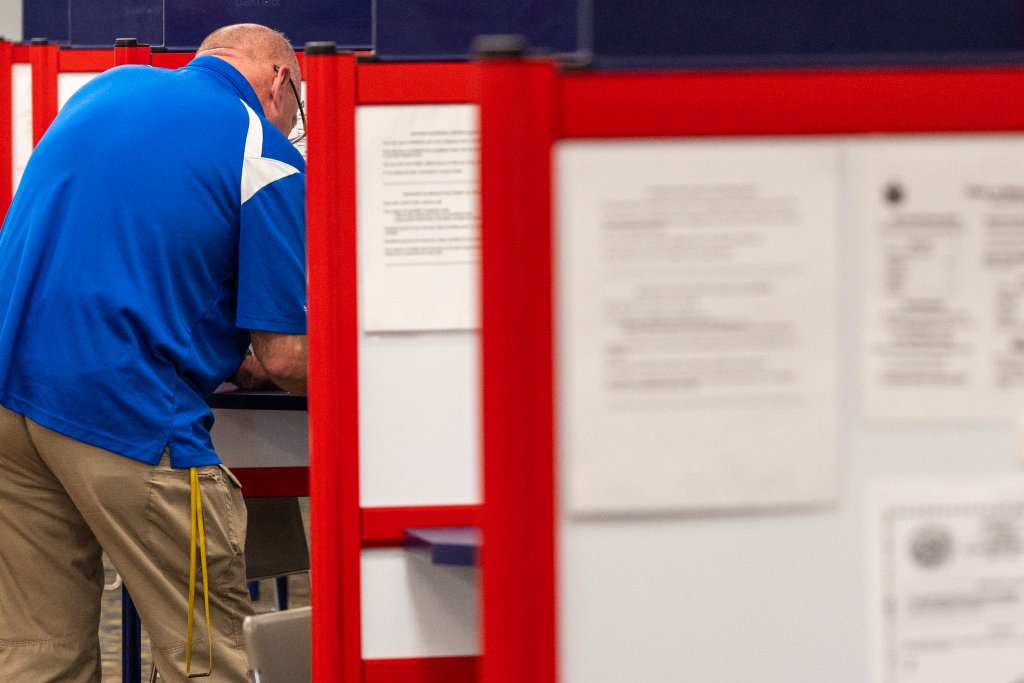
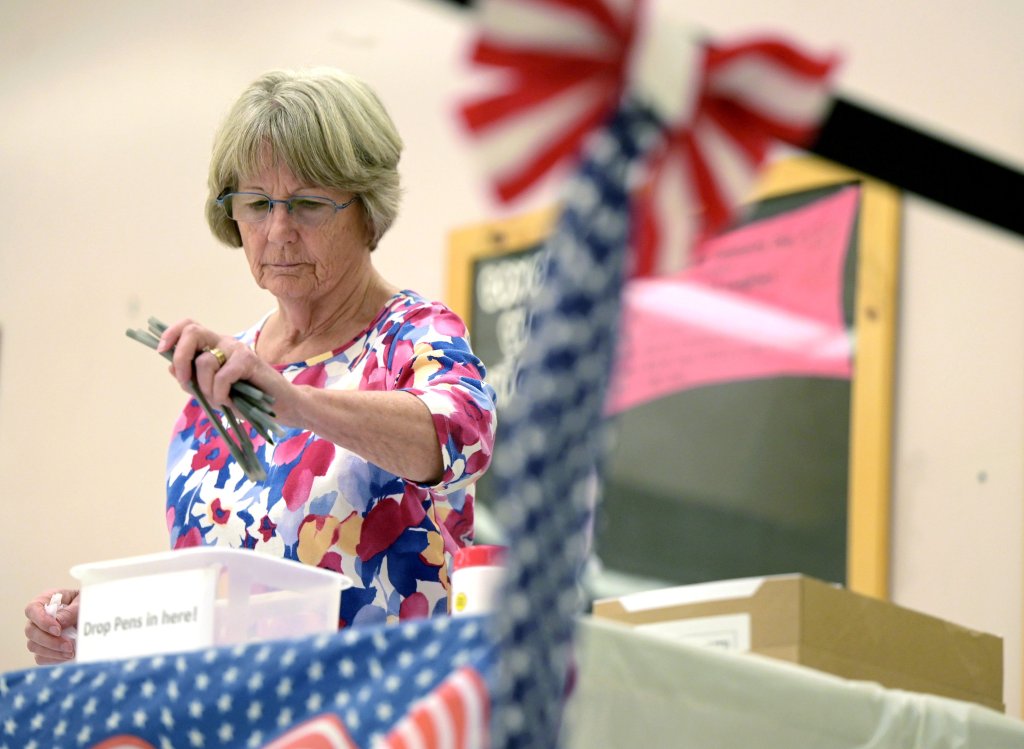
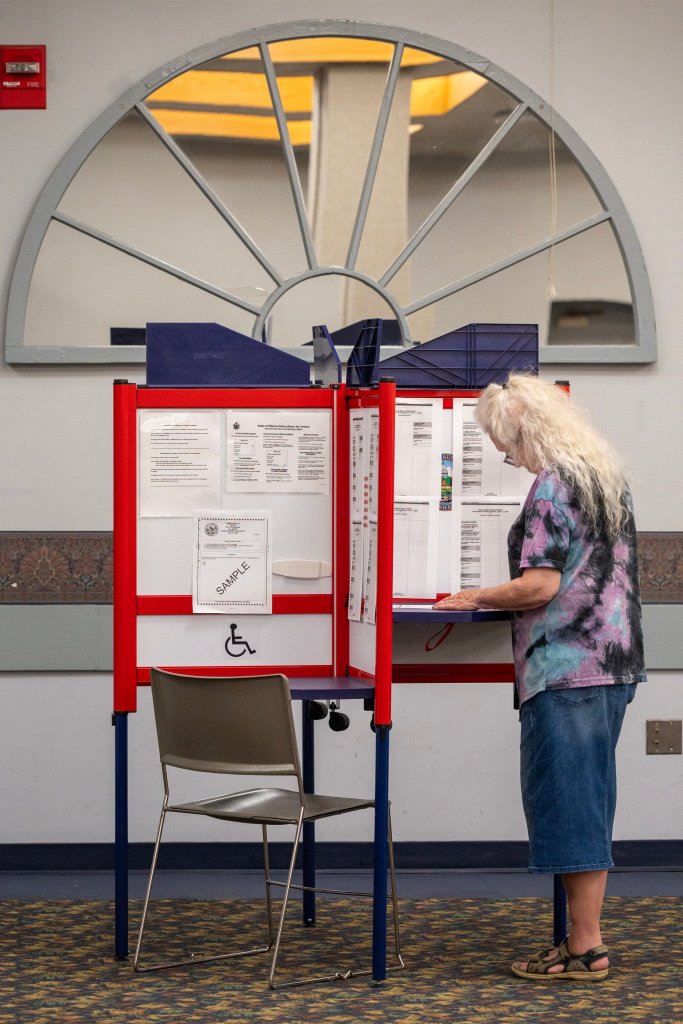
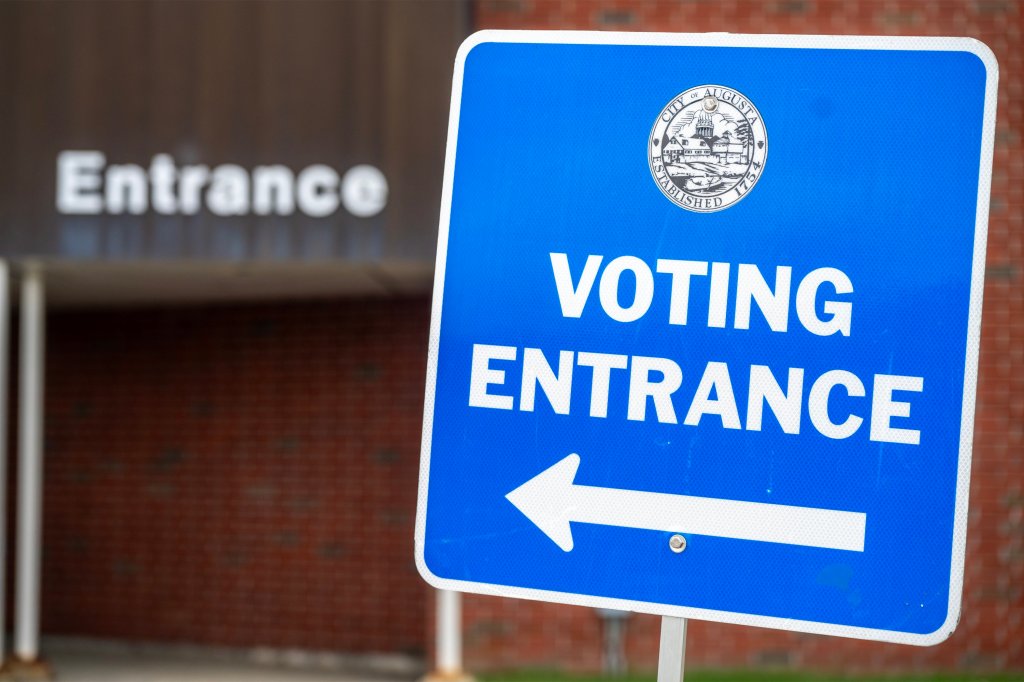
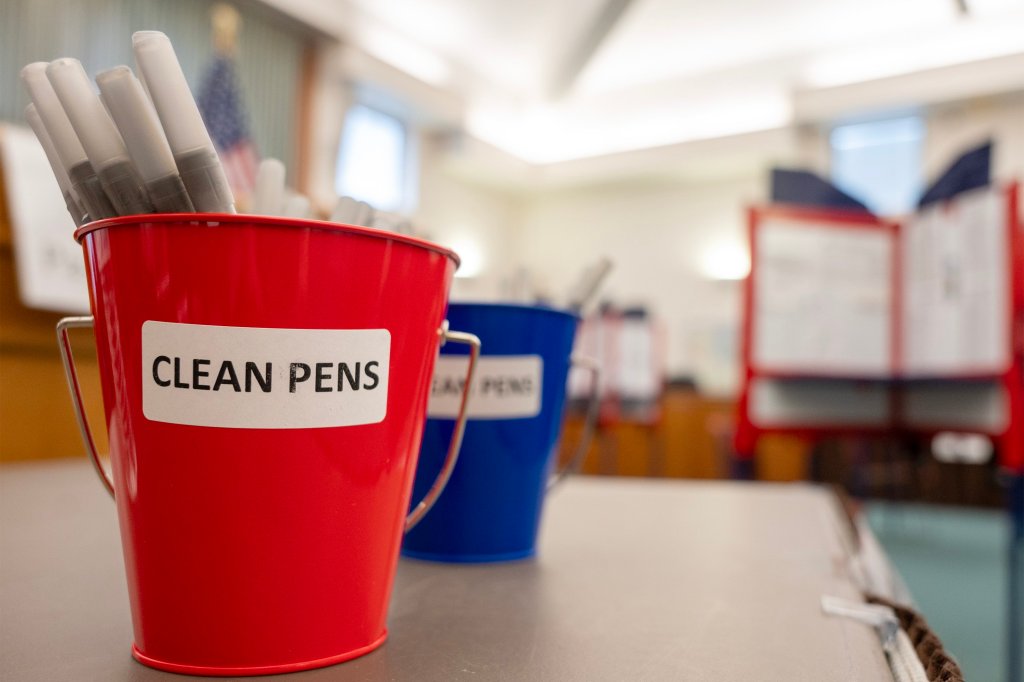


Comments are no longer available on this story